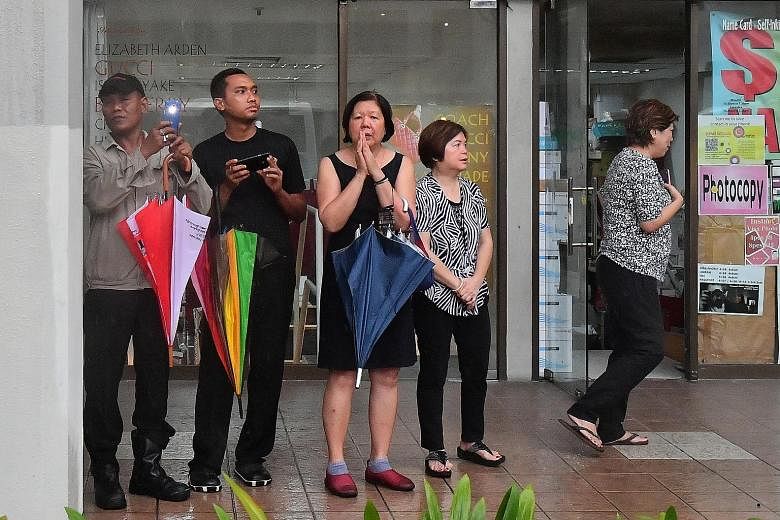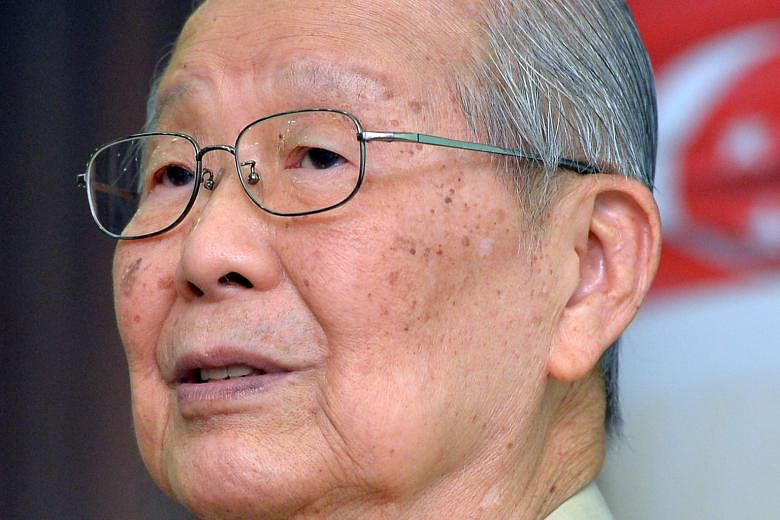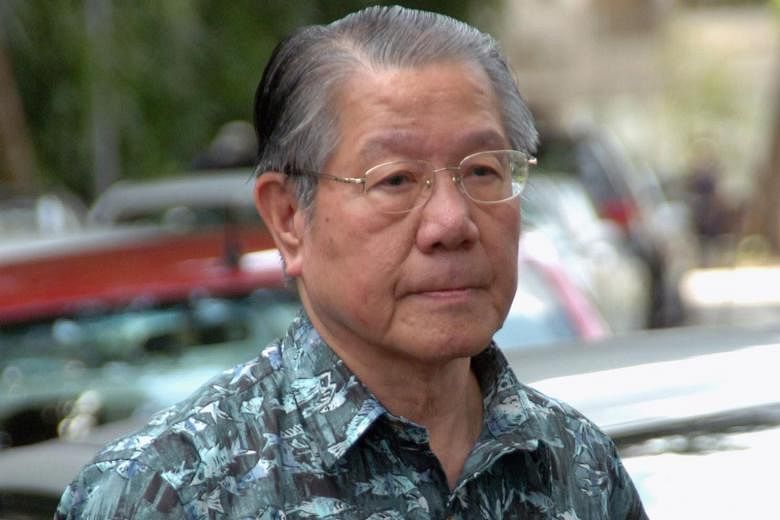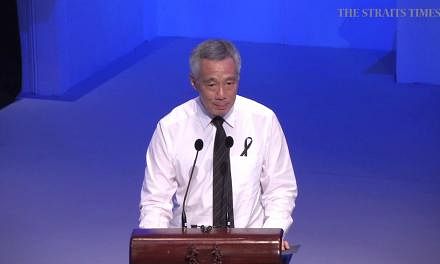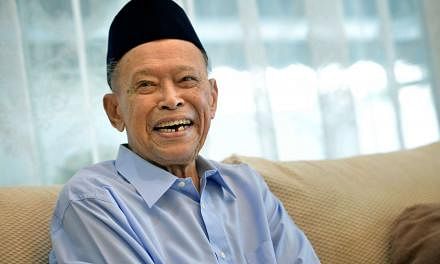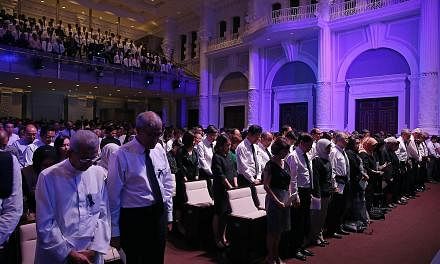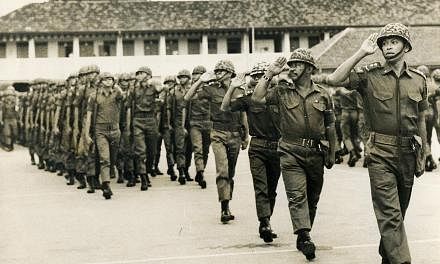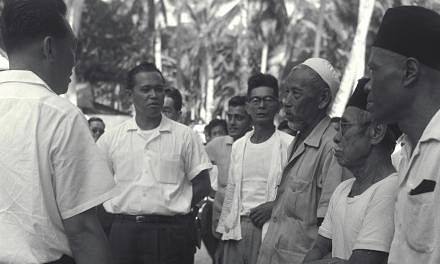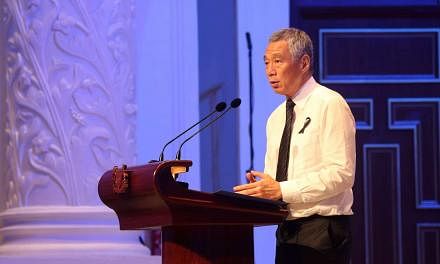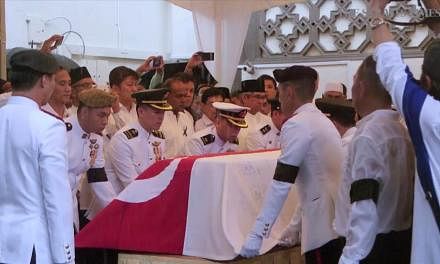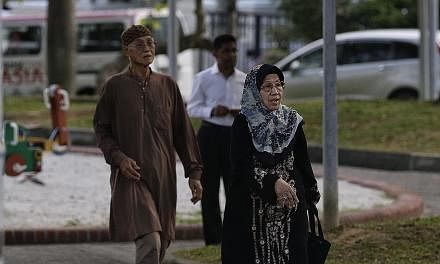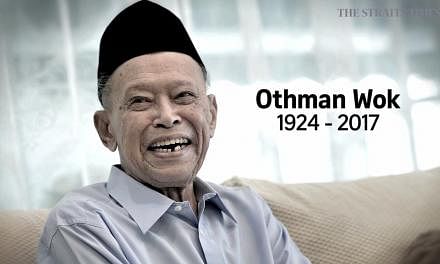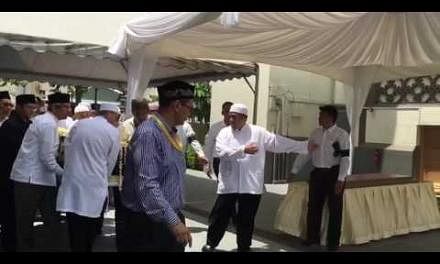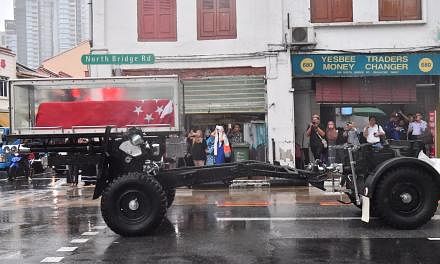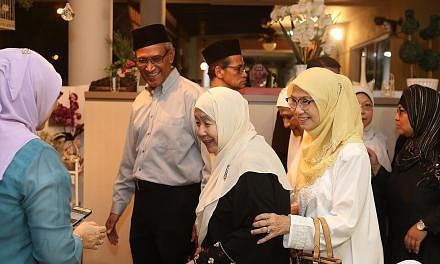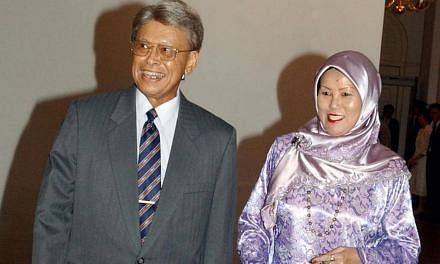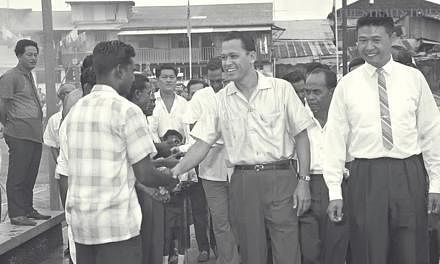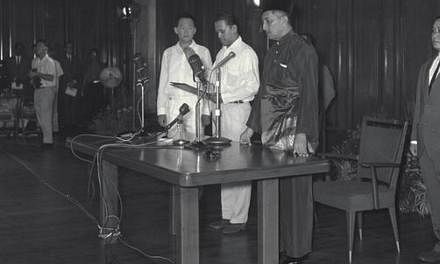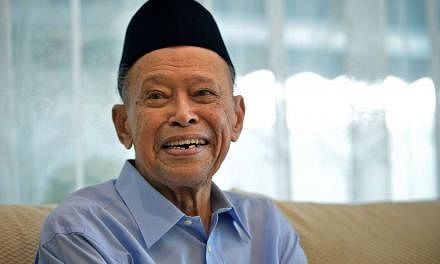When separation from Malaysia became imminent in August 1965, Singapore's Prime Minister Lee Kuan Yew pulled Mr Othman Wok aside to speak to him privately about it.
Leaving Malaysia meant the Malay-Muslim community in Singapore would go from being a majority to a minority, and Mr Lee was worried that Mr Othman, the only Malay-Muslim member of the Cabinet, would oppose the separation.
But Mr Othman, who was minister for social affairs, readily agreed to put his signature to the separation agreement, demonstrating his steadfast support for a multiracial Singapore.
This sent a strong signal to other Malay-Muslim members of the People's Action Party (PAP), and none of them defected to other political parties over the separation issue.
The late Mr Lee, recounting the event at his 75th birthday dinner in 1998, said of Mr Othman: "Because of the courage and leadership you showed, not a single PAP leader wavered. That made a difference to Singapore."
Mr Othman, who died on Monday, aged 92, was one of 10 representatives from Singapore who signed the Independence of Singapore Agreement when Singapore left Malaysia in 1965.
The other signatories were Mr Lee and eight other ministers: Dr Toh Chin Chye (deputy prime minister), Dr Goh Keng Swee (finance), Mr E. W. Barker (law), Mr S. Rajaratnam (culture), Mr Ong Pang Boon (education), Mr Yong Nyuk Lin (health), Mr Lim Kim San (national development) and Mr Jek Yeun Thong (labour).
With Mr Othman's death, only two members of this group of Old Guard leaders remain - Mr Ong, 88, and Mr Jek, 86.
Mr Ong was a member of self-governing Singapore's first Cabinet, formed after the PAP won the Legislative Assembly General Election in 1959. He was appointed minister for home affairs that year, and spearheaded the "anti-yellow culture" campaign to stamp out pornography, gambling dens, prostitution and secret societies.
He went on to hold other portfolios, including education, labour, environment and communications, until 1984. He remained a backbencher until he stepped down from politics in 1988.
Mr Jek was elected a member of the legislature in the 1963 General Election. He was appointed labour minister that year and tasked with reforming the trade unions that had been taken over by communists.
He subsequently also held ministerial positions for culture as well as science and technology until his retirement from politics in 1988.
As minister for culture, Mr Jek promoted Asian art and values as a "cultural ballast" against Western decadence.
After leaving politics, he became a diplomat. He was Singapore's high commissioner to the United Kingdom and ambassador to Denmark.
Danson Cheong

